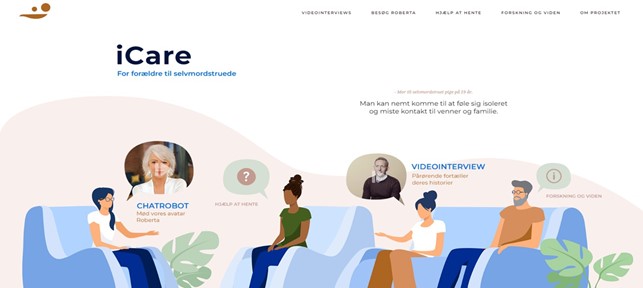Each year, there are approximately 11,000 suicide attempts in Denmark, mainly among young people under the age of 25. Clinicians who provide support to young people after suicide attempt are often consulted by the young person’s parents who are keen to support their child. To provide better information to parents, DRISP has developed a website for this target group and in collaboration with parents with lived experiences. This website is now testing to determine whether parents find it useful. In connection with the project, several qualitative studies have been conducted, which are described here below.
Study 1: Existing evidence regarding the experiences of relatives caring for people with suicide attempts was reviewed. A total of 12 studies on the subject were included and a meta-ethnographic synthesis was conducted. The results showed that relatives of people with suicide attempts often pass through four unique phases, which each represent different perspectives and emotions. It was also found that interaction with other relatives who experienced comparable challenges made it easier for relatives to pass through these phases and helped them to find themselves in new and challenging situations.
The study can be found here:
https://www.sciencedirect.com/science/article/pii/S0020748920302790
Study 2: Interviews were conducted with 21 Danish parents of children with suicidal behavior. The results of the study showed that parents’ perceived that their identity was affected by their children’s suicidal acts. The perceived identity of the parents passed through up to three interrelated phases. Each phase reflected a different perspective of their identity and was developed in social interaction with other people. It was also found that not all parents were able to re-establish their parenting agency.
This study can be found here: https://www.sciencedirect.com/science/article/pii/S002074892030279
DRISP: Jette Louise Skovgaard Larsen, Anette Juel Kynde, Britt Morthorst, Annette Erlangsen
Partners
- Elene Fleischer, PhD Netværk for selvmordsramte (www.nefos.dk)
- Niels Buus, Mental Health Nursing, Sydney Nursing School, University of Sydney
- Jan-Henrik Winsløw, Enhed for Selvmordsforebyggelse, Region Nordjylland
- Prof Keith Hawton, Centre for Suicide Research, University of Oxford




